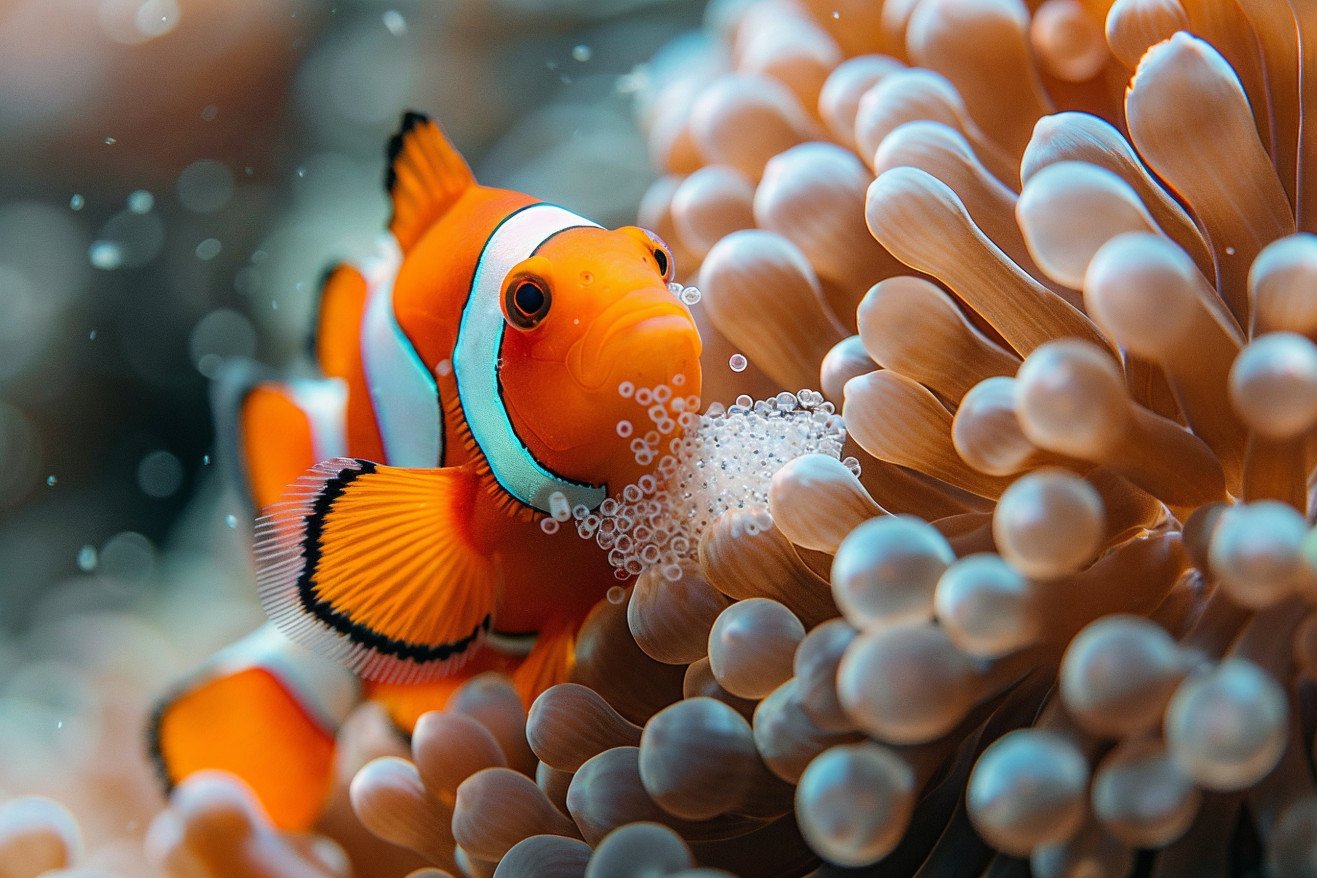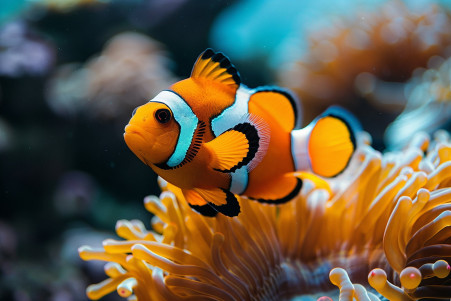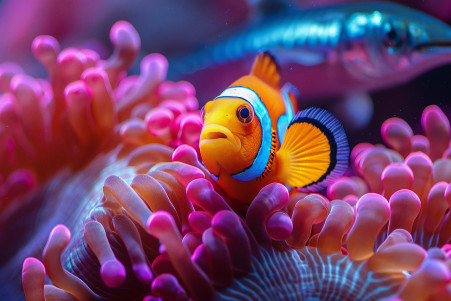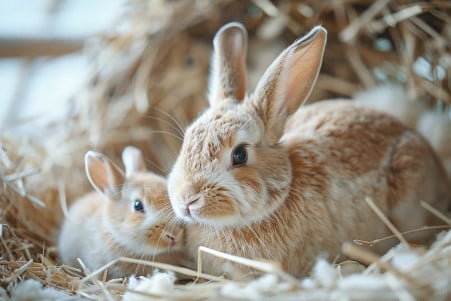Why Do Clownfish Eat Their Eggs? An Explanation of Parental Behavior
29 February 2024 • Updated 27 February 2024

Clownfish are known for their parental care, but do they also eat their own babies’ eggs? Male clownfish, who are the sole caregivers, will eat their eggs if they believe they are not going to hatch or if they have been infected with a fungus.
This is a response to stress and malnutrition and is a way to make sure that the healthiest eggs are the ones that hatch, ultimately increasing the fitness of future generations and the parental investment as a whole.
In this deep dive into clownfish behavior, we will look at research from marine biology, ethology, and ecology to understand the many things that impact how clownfish care for their eggs, including environmental stressors and the ecological benefits of eating eggs. By breaking down the research, we hope to give a more complete picture of the many factors that lead these fish to make life-or-death decisions about their young.
Why do clownfish eat their eggs?
The Complexities of Clownfish Reproduction
The reproductive process of clownfish is a prime example of parental care, especially on the part of the male clownfish. Reproduction is external, with females depositing their eggs on a flat surface, usually close to a sea anemone for protection. As explained by the Biology Dictionary, the male then fertilizes the eggs by swimming over them and releasing sperm in a carefully coordinated underwater ballet.
After fertilization, the male’s care becomes even more involved as he takes on the role of the primary parent, protecting the eggs and ensuring their development by cleaning and aerating them.
According to the Saltwater Aquarium Blog, the male also spends hours fanning the eggs with his fins, caring for them and removing any that are dead or infected. This selective cannibalism is not a sign of neglect but a way to ensure that the eggs that remain are healthy and have the best chance of surviving.
If the eggs are unfertilized, infected with fungus, or if the parents are undernourished, the male may eat the eggs. This behavior, which increases the chances of successful reproduction, is an instinctual response to the need to ensure that only the healthiest eggs are protected.
This level of care demonstrates the importance of the male clownfish in ensuring the survival of the next generation and provides a foundation for exploring how outside factors can impact these behaviors.
The Role of Light and Temperature
Clownfish are exposed to a number of environmental stressors that can impact their reproductive output. One of these is light pollution. A paper in Biology Letters found that artificial light at night (ALAN) has a significant impact on the hatching success of clownfish eggs.
The eggs that were exposed to ALAN did not hatch, which suggests that even low levels of artificial light can disrupt the environmental cues that are necessary for hatching. This disruption could have serious implications for clownfish and the marine ecosystems they inhabit.
Temperature is also important for the embryonic development of clownfish. A paper on ScienceDirect showed that the best water temperatures can have a positive effect on the hatching success of clownfish. The researchers discovered that a temperature of around 29°C led to the best embryonic development and hatching of false clownfish, while deviations from this temperature had negative effects on hatching success and yolk sac volume.
Environmental changes can cause stress responses in clownfish that can lead to changes in parental care, including eating eggs that are considered non-viable. This makes it important to understand how these factors interact with clownfish parental care in terms of conservation and marine biology.
How Nutrition, Stress, and Egg Cannibalism Are Connected in Clownfish
The well-being of clownfish and the well-being of their eggs are directly related to the nutrition and stress levels of the fish. Malnutrition in clownfish not only affects the fish but also the health of the eggs.
If the fish are malnourished, they may not have the resources to care for the eggs and may turn to eating them as a way to get the nutrients they need. Stress responses, like those caused by habitat disturbances, can also lead to egg cannibalism, as a meta-analysis in Proceedings of the Royal Society B explains.
These stressors can lead to an increase in egg cannibalism in clownfish as a way to manage resources and potentially reallocate energy to ensure the survival of the remaining eggs.
Moreover, a study by Katja U. Heubel in PMC shows that personality-dependent factors, such as higher activity levels in clownfish, can lead to higher rates of filial cannibalism, which suggests that clownfish’s natural behavior can play a role in the increase of this response to stress and scarcity.
Adaptive benefits, such as the reallocation of resources to the most viable offspring and disease prevention, are also shown when examining the potential benefits of selective cannibalism in stressful environments. In the end, these behaviors help clownfish adapt and thrive in the ever-changing and diverse world of the ocean.
The Evolutionary Strategy of Selective Filial Cannibalism in Clownfish
In addition to clownfish, many other fish species, especially those with male brood care, engage in filial cannibalism. While this behavior may seem maladaptive, it has evolved to serve a number of specific purposes.
A meta-analysis in Proceedings of the Royal Society B shows that males that practice filial cannibalism may not actually be reducing their chances of successful mating. Instead, selective cannibalism may be a way to increase lifetime reproductive success by investing in the offspring that are most likely to survive.
A study by Katja U. Heubel, published in PMC, explains that the consumption of non-viable eggs helps to reallocate resources that would otherwise be wasted and prevents the spread of disease within the clutch.
These adaptive functions are in line with the idea of survival of the fittest, as they ensure that only the healthiest offspring will reach maturity and pass on their genes. From an evolutionary biology standpoint, this behavior is a major contributor to the overall fitness of the clownfish species, as it maximizes reproductive output and success in a variety of environmental contexts.
Recognizing these adaptive functions can help us better understand the nuances of clownfish behavior and their impressive ability to ensure the continuation of their species.
The Complex Factors That Influence Clownfish Parental Choices
In the complex world of marine parenting, clownfish are a prime example of parental care that is sometimes interrupted by the paradox of egg cannibalism. Upon close inspection, we have found that a variety of factors, from ecological to evolutionary, contribute to this behavior.
Egg cannibalism is influenced by everything from the eggs themselves to environmental stressors, as Biology Letters explains. Male clownfish have evolved to ensure that only the best genes are passed on by selectively eating eggs that are unfertilized, diseased, or otherwise compromised.
In addition, as "Biology Letters" and "ScienceDirect" explain, factors like artificial light at night and suboptimal temperatures can have a big impact on hatching success and lead to egg cannibalism. Meanwhile, a meta-analysis in "Proceedings of the Royal Society B" shows that parental nutritional state and environmental stress are also important factors in the parental decisions of these dedicated parents.
This knowledge is important for conservation and also offers valuable information about the adaptability and resilience of marine animals. As we conclude this examination of clownfish, let’s take a moment to appreciate the intricate interplay of environmental and biological factors that influence the behaviors of these amazing reef inhabitants.


